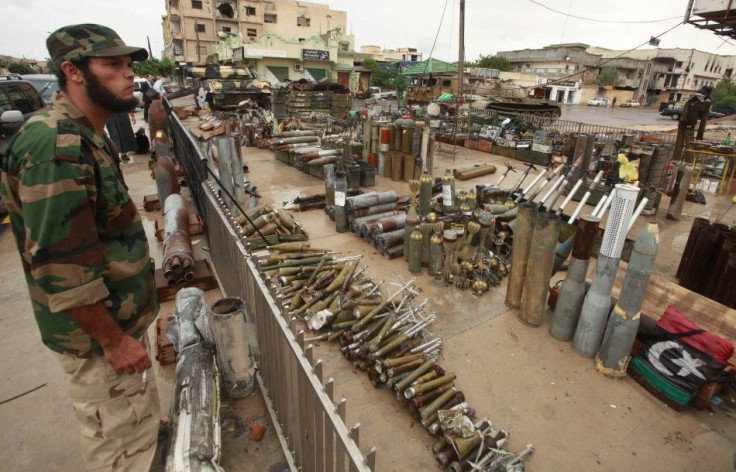For U.N., Loose Weapons in Libya Still a Problem

Libyan dictator Moammar Gadhafi spent 42 years stockpiling weapons. And now, with Gadhafi gone and Libya's new government still in its infancy, the United Nations Security Council is worried that the weapons could fall into the hands of militant groups or be put into circulation.
Proliferation of all arms... in particular, man-portable surface-to-air missiles, in the region, could fuel terrorist activities, including those of al-Qaida in the Islamic Maghreb, a resolution drafted by Russia and unanimously adopted by the other Security Council members stated.
The U.N. is particularly worried that the huge number of shoulder-fired missiles could be used to shoot down passenger planes.
As part of the resolution, the Security Council also insists that the Libyan government destroy all chemical weapons in coordination with international authorities, according to BBC.
Early in the Libyan revolution, the National Transitional Council and NATO discovered bunkers containing decades-old chemical weapons, including a large number of 50 gallon drums of mustard gas. Some of the weapons, such as antiquated landmines, had been haphazardly stockpiled.
The U.N. has called on all of Libya's neighboring states to help prevent weapons smuggling and to prevent the proliferation of arms.
Before officially ending its mission in Libya at midnight on Monday, NATO destroyed a number of weapons storage facilities, but it is unclear how many more there are in the country. The United States is leaving 15 explosive experts on the ground to help destroy the weapons, and could send an additional 100, BBC reported.
Upon the conclusion of the Libya mandate, NATO head Anders Fogh Rasmussen spoke in Tripoli on Monday.
You've acted to change your history and your destiny; we acted to protect you. Together we succeeded, Rasmussen said at a news conference.
The future of free Libya is finally firmly in your hands.
Monday was also a significant day for the history of Libya. The National Transitional Council elected Abdurrahim al-Keeb as the interim prime minister.
Keeb, who was educated in the United States and was a professor University of Alabama for many years, will lead the country until general elections are held sometime in 2013.
The National Transitional Council plans on electing a national congress within eight months.
© Copyright IBTimes 2024. All rights reserved.





















